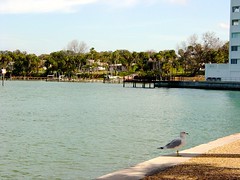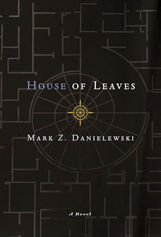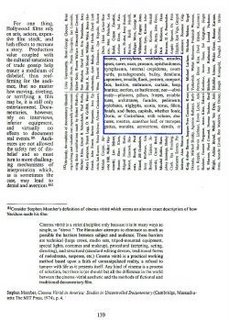Ad Astra Per Aspera

You'll be hearing a lot this week about the Challenger disater, which hits its 20th anniversary tomorrow. But today is also the anniversary of another space disaster, that of Apollo 1. Three people (Command Pilot Virgil I. Grissom, Senior Pilot Ed White, and Pilot Roger B. Chaffee) died when a spark turned the 100% oxygen environment of the test capsule into a blazing inferno.
Grissom is one of the lesser remembered heroes of the early Space Age. He is probably best remembered as the guy who said:
If we die, we want people to accept it. We are in a risky business and we hope that if anything happens to us it will not delay the program. The conquest of space is worth the risk of life.
He died shortly thereafter. But first, he wrote a book about his experiences in the Gemini Program, called Gemini.
I found this book at the Friends of the Library Booksale 2 years ago. It is pretty beat up, with many pages falling out and with a frayed binding. There is no cover image or dustjacket. I would link to it, but I think it is long since out of print.
The style is very simple and straightforward. Grissom was an Indiana man who grew up to be an Air Force test pilot who was tapped to populate the emerging human space flight program. He puts on no airs as he describes his beginnings and his suprise at being named for what was at that time a very low profile endeavor. Grissom goes out of his way to give credit to the hundreds of engineers and scientists on the ground that made his flights possible.
While in part an autobiography, the main focus of the book is to explain why the space program is important. While much of his argument is based on Cold War politics - namely, we need to beat the Soviets up there - there is also the triumph of the human spirit argument which is made infinitely more poignant with the knowledge one gets from reading this man's thoughts and knowing the price he would pay for following his ideals.
A large portion is also dedicated to arguing a version of that quote up above - an argument against the opponents of the space program, who claimed (and still claim) that it was too dangerous, that someone was going to die. Here Grissom simply states that he knows the risks, and that he trusts the engineers and support staff implicitly.
If Grissom had not died on Apollo 1, he would have been at the top of the list for being the first man to walk on the moon. He never made it that far, but his life and his death allowed the men who followed him to take his place. His book, which was sent to his editor shortly before his death and was published posthumously, is charming and touching and fascinating and down-to-earth (forgive the pun).
It's also all but forgotten by everyone except the Library of Congress. Let's hope Grissom doesn't suffer the same fate.
From the plaque honoring him and his crew:
IN MEMORY OF THOSE WHO MADE THE ULTIMATE SACRIFICE SO OTHERS COULD REACH FOR THE STARS
AD ASTRA PER ASPERA
(A ROUGH ROAD LEADS TO THE STARS)
GOD SPEED TO THE CREW OF APOLLO 1
Space heroes make me gush. Godspeed Gus!





